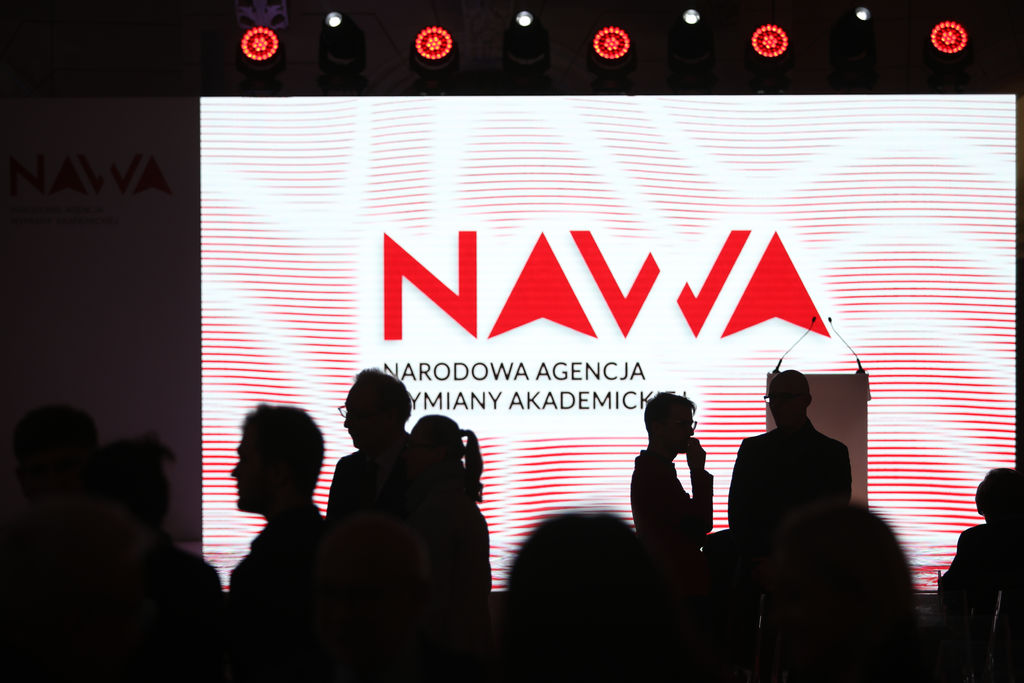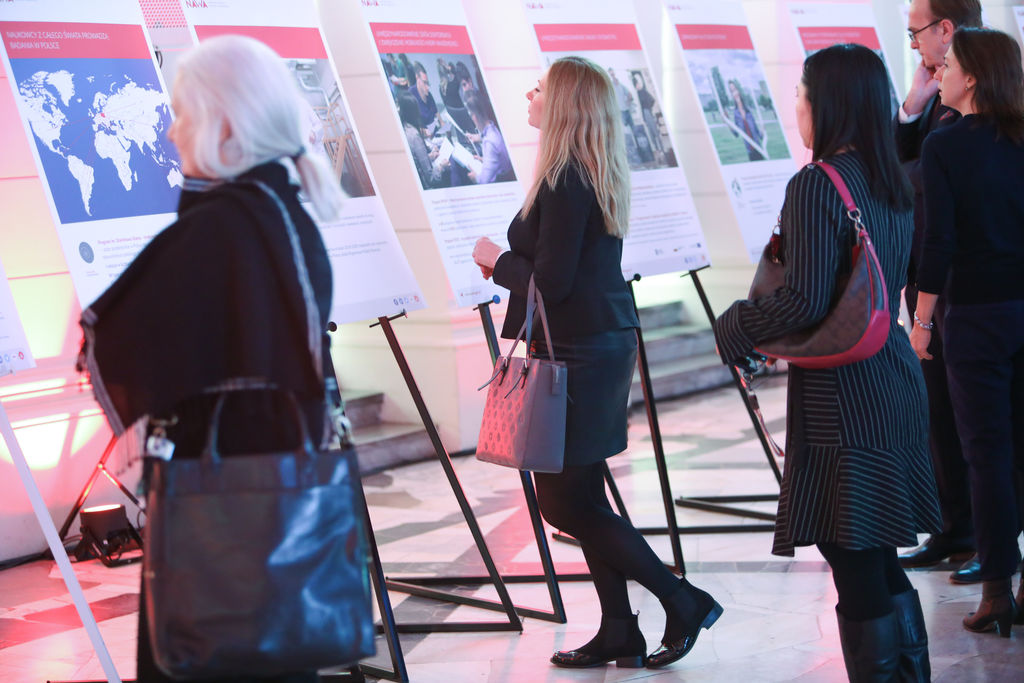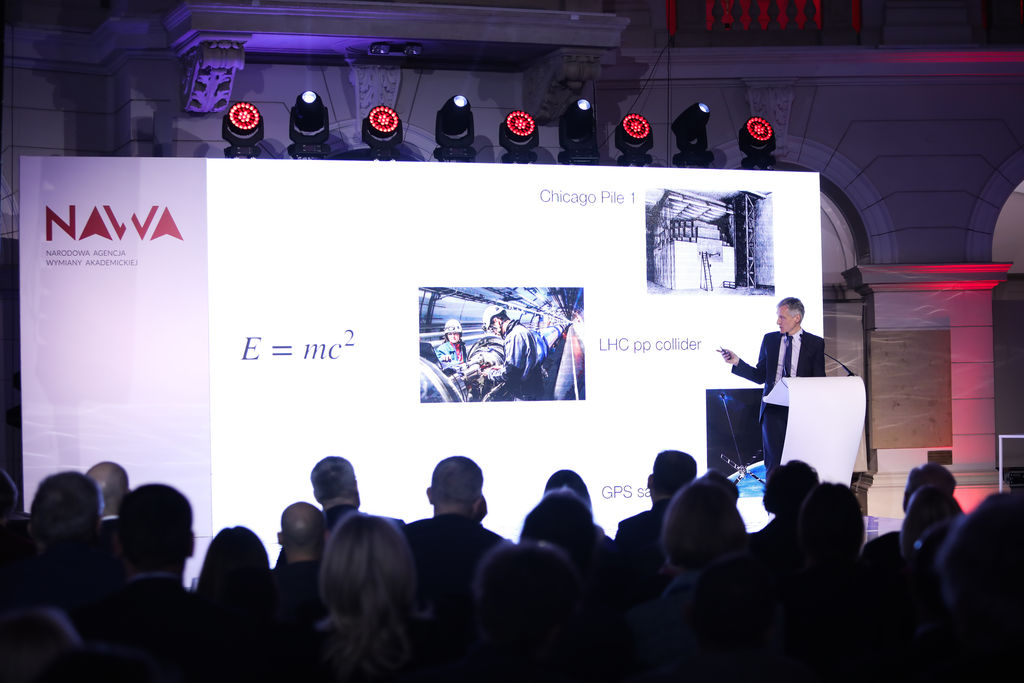The conference ‘Internationability of Polish Science and Higher Education’, held in Warsaw on 26 November, was an opportunity to sum up the two years of our activity.
Almost 200 representatives of higher education institutions, research and scientific centres, foreign agencies, embassies and other units active in the field of internationalisation of higher education and science attended the conference marking the second anniversary of establishing the Polish National Agency for Academic Exchange (NAWA). NAWA initiated its activity on 1 October 2017.
When inaugurating the conference, NAWA Director Łukasz Wojdyga said that NAWA’s chief task is to foster academic mobility and the internationalisation of higher education. As he emphasised, it goes without saying today that internationalisation is important. What we should discuss are its results.
The president of the NAWA Council, Prof. Sebastian Kołodziejczyk, stressed that the Agency had been established in response to the needs of the Polish academic community. He recalled the existing NAWA programmes, whose results we are going to see within the next several years. According to Prof. Kołodziejczyk, Polish research ‘needs to gain an international status in order to be recognisable.’ As a good example, he mentioned the Ulam Programme, which is directed at foreign scholars and which proves that Poland is an attractive place for researchers from abroad.
The conference programme featured six thematic sessions with presentations by representatives of Polish and foreign institutions:
- Scientific success across borders – a session presenting pairs consisting of renown researchers – representatives of Polish universities and their foreign partners. It aims to showcase how collaboration with foreign partners translates into international success at both the individual and the institutional level.
- International academic community in Polish research facilities – a session which will demonstrate examples of good practices: Polish research centres which establish international research teams and attract staff from renown research institutions around the globe as well as the measurable benefits of such collaboration.
- From the idea phase to fruition – a session on the potential of and the challenges related to the implementation of scientific discoveries. It will present four perspectives, namely those of: the research institution, the researcher, the business partner collaborating with the university and the institution which fosters collaboration between higher education institutions and business.
- It’s time for Poland now! – a session on the decisions to continue one’s scholarly career in Poland. It will present the experience and motivations of foreign academics who chose Poland as the place of their scholarly and didactic works as well as Polish researchers who have returned from foreign institutions to work in Poland.
- International promotion of science – a session devoted to the aims of and the barriers in promoting scientific achievements. When is the promotion of science successful, whose task is it and how can it affect the results of scholarly work? The starting point of the discussion will be NAWA’s publication promoting the achievements of Polish research.
- Exchange of good practices, practice of good exchanges – a session which will create the opportunity to compare the experience of various European institutions that promote higher education and research, i.e. foster academic exchange, develop research partnership networks and increase the international character of higher education institutions.
Agnieszka Stefaniak-Hrycko, Deputy Director of NAWA, concluded the conference with the observation that international cooperation acts as the driving force behind progress and makes it possible to look at a research problem from various perspectives. Moreover, it creates the opportunity to carry out research on a large scale and gives scholars access to major research infrastructure. She emphasised that internationalisation helps increase the quality of research as well as education offered to students.
‘I hope that introducing the neologism “internationability” into the lexicon has encouraged the conference participants to reflect on the opportunities offered by international cooperation. In addition, we have proven Poland’s solid “ability” to be a partner in international cooperation projects,’ Agnieszka Stefaniak-Hrycko said.
The conference was preceded by the inauguration of NAWA’s second anniversary celebrations. A keynote speech was held by Prof. Eckhard Elsen, CERN director for research and computing, at Warsaw University of Technology on 25 November. Moreover, NAWA’s publication Science in Poland in 34 Snapshots, which describes selected achievements of Polish scholars and research teams as well as the Polish research infrastructure, was launched. The publication had been prepared in collaboration with the Conference of Rectors of Academic Schools in Poland. Its purpose is to promote Polish science among the international academia.
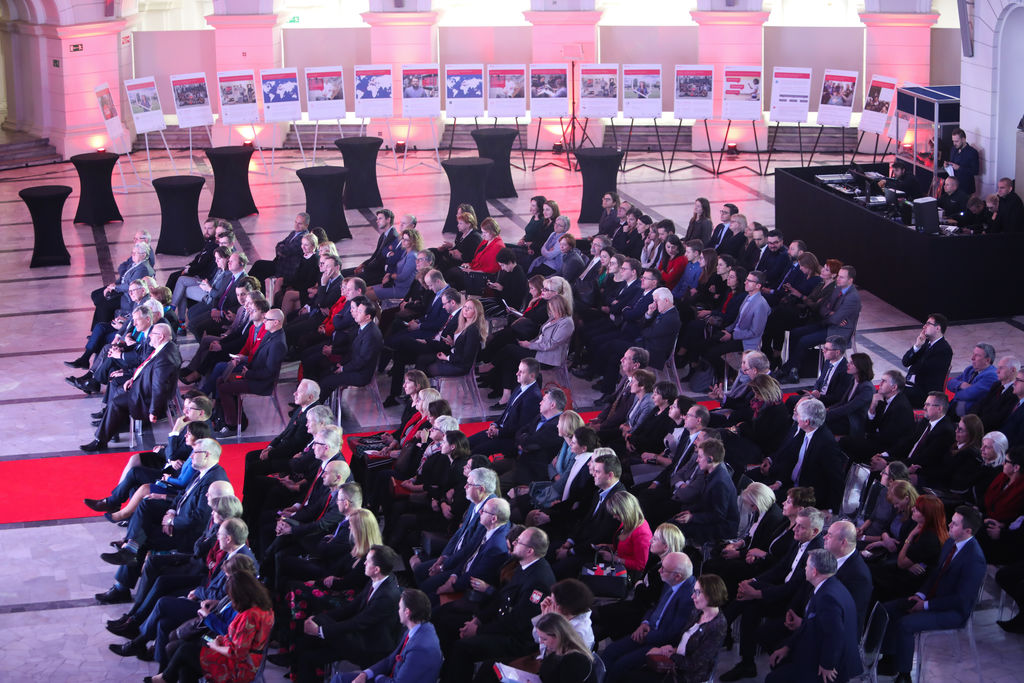
Inauguration of NAWA’s second anniversary celebrations.
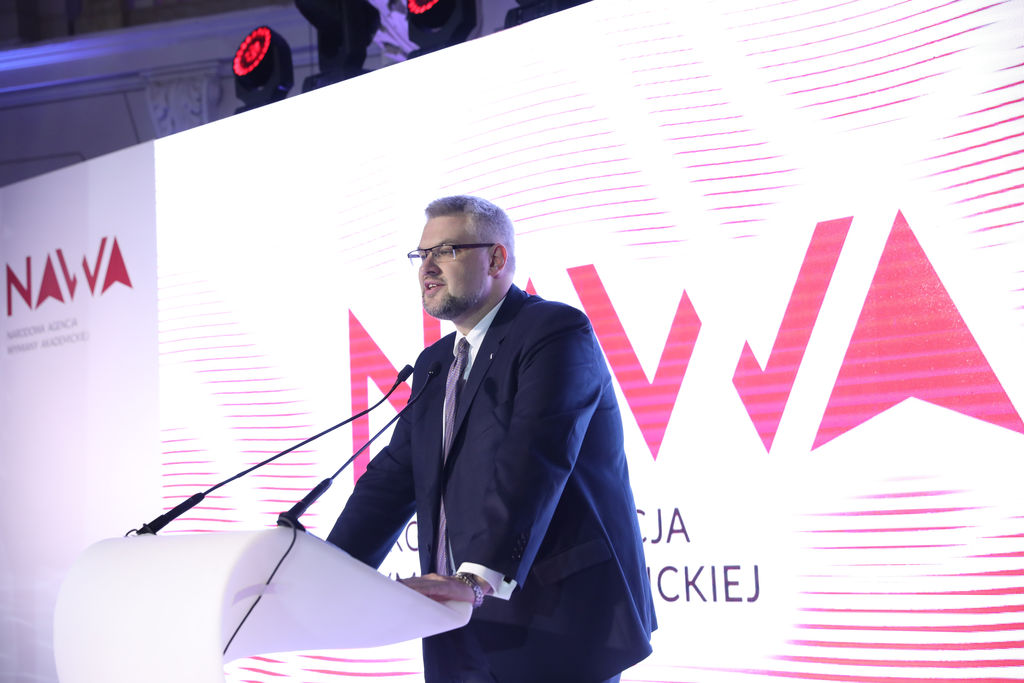
NAWA Director General Łukasz Wojdyga opening the conference.
Exhibition presenting NAWA’s activity.
Prof. Eckhard Elsen, CERN director for research and computing, holding the keynote lecture.
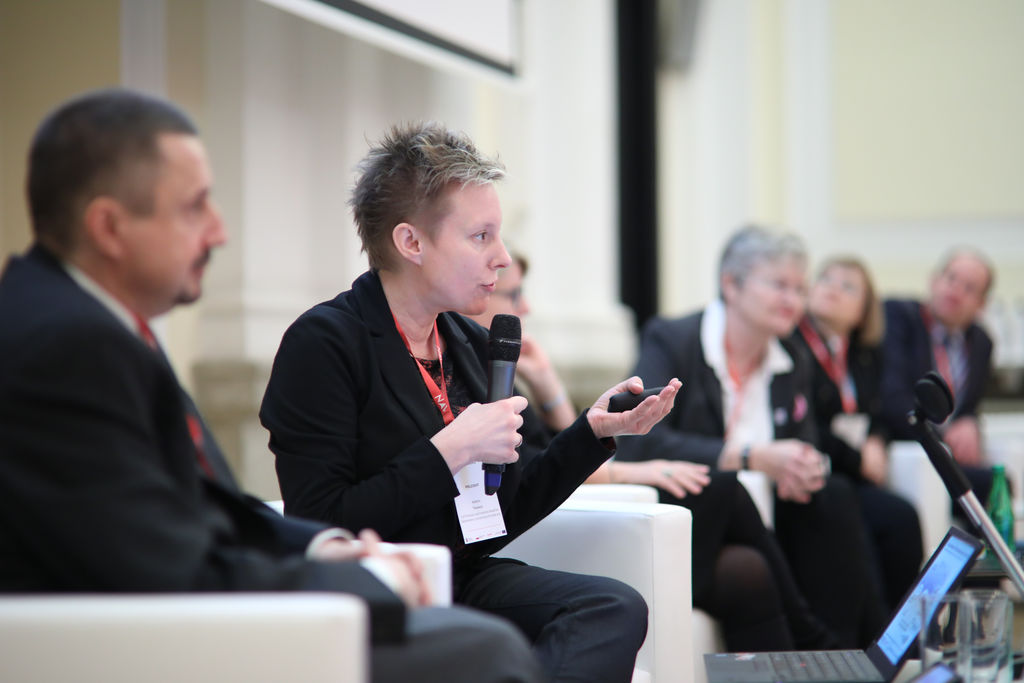
Conference session ‘Scientific success across borders’ with pairs of Polish and foreign scientific partners.
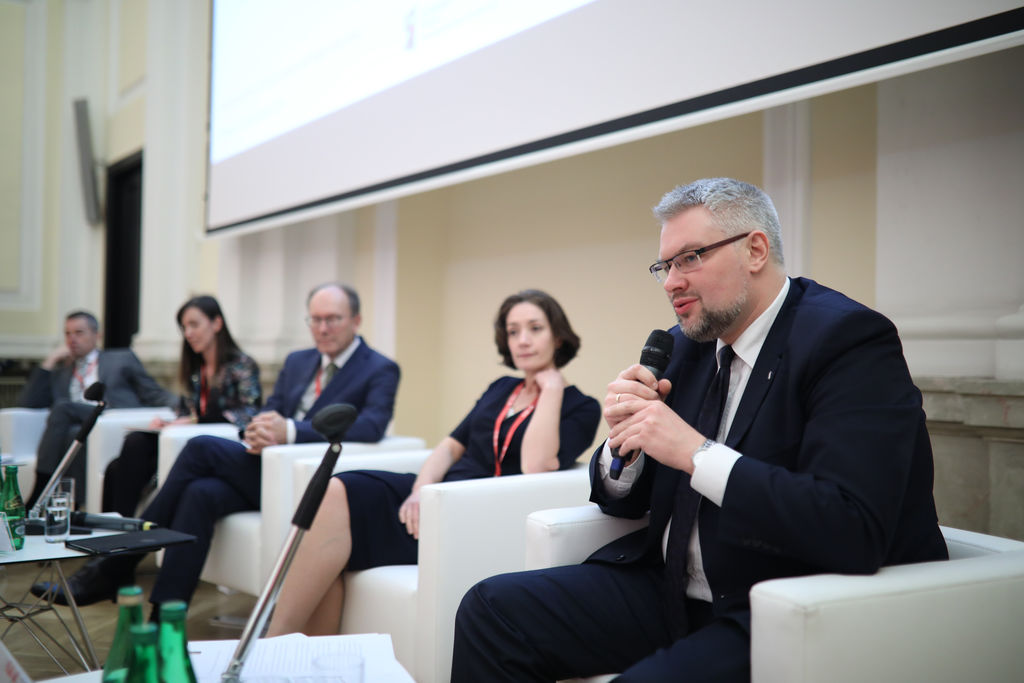
Session ‘Exchange of good practices, practice of good exchanges’ attended by representatives of EAIE, ACA, DAAD and Universities UK International.
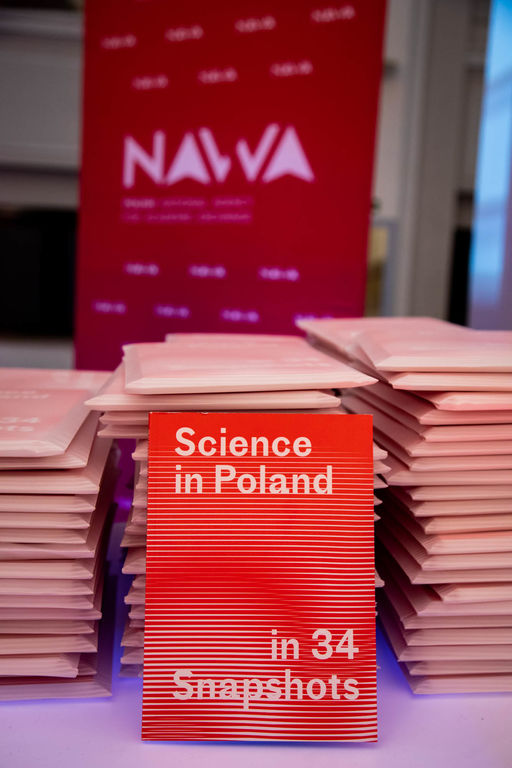
Launch of NAWA’s publication Science in Poland in 34 Snapshots.
